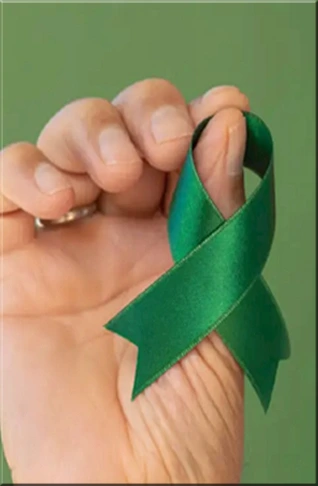
TBI AWARENESS “WHITE CANE” PROCESS
Protect Intellect!
Understanding Traumatic Brain Injury: Why Awareness Matters
Each year, 2.9 million Americans visit emergency rooms due to traumatic brain injuries (TBI), and an estimated 35 million survivors live with its effects nationwide. Once considered a death sentence, advancements in medicine—especially during the Iraq War—pioneers medical advances that has turned TBI into a survivable condition.
Traumatic brain injury is the only disability a person can recover from. Thanks to the brain’s neuroplasticity, neurons and networks can grow around the injured areas. These new pathways take over lost functions, and enable survivors to regain their abilities. While this is good news; It takes 5-15 years to heal the neural network. Recovery is slow.
The “WHITE CANE” Campagin
We know when we see a “White Cane” that the person is BLIND. They are unable to see. They are disabled. We are taught by our Mother’s to HELP the disabled person. We don’t kick the “white cane” of a blind person. We don’t trip them when they try and walk down the street. We don’t steal their packages, because they can’t see us coming.
Learning from our parent, TBIRA is asking you to HELP the TBI Survivor with their task: “going somewhere”, “finding an office”, choosing something to buy. Don’t CALL the security guard or police. Sometimes they are suffering from OVERWHELMING FATIGUE, and must sit or lie down. Let them.

Unlike the developmentally disabled, or degenerative disease of Stroke, Alzheimer’s, Parkinson, and ALS, the TBI Survivor maintain their intelligence (IQ), and usually long-term memory. It is Working Memory & Associative Memory that challenge them. These areas are NOT covered in Speech Therapy & Memory care offered by most providers. These Memory conditions are NOT COVERED by MEDICAID/MEDICARE.
TBI Survivors face unique challenges, particularly with cognitive processing and emotional regulation. These difficulties with emotional control can result in social behaviors that are misunderstood, causing bystanders to call the police or security guards unnecessarily. Sudden arrests to remove the TBI Survivor from the premises for disturbing patrons/shoppers lead to a criminal record.

TBI Recovery is complicated by this criminal record that interferes with their ability to re-enter the job market.
The TBI Survivor is an innocent victim of their disability unable to change behavior until the neural network repairs itself. They are punished by society, and law enforcement officers believing they are protecting the business and commerce revenue to the city.
An Invisible Injury with Visible Challenges
TBI survivors experience damage to the brain’s executive functions, which govern decision-making, organization, planning, and judgment. While they often know what they want to do, their brains process information more slowly from minutes to hours. Many have found their social knowledge impaired, and they fail to recognize how to respond in social situations. They will rehearse the situation in their mind repeatedly trying to understand what went wrong – the “LIGHT BULB” DOESN’T GO ON for minutes, hours, days, and even weeks before they figure out what happened. Additionally, the limbic system—the part of the brain controlling emotions—can amplify their reactions. TBI Survivors lack the ability to filter external stimuli, and their own emotions, leading to quick anger, and outbursts of frustration – considered “child-like” maturity. This behavior in an adult might seem unusual to the average person, who claim it’s “violent” or “unbalanced”.
To the average person, TBI behavior may seem “strange”. TBI Survivors may be overwhelmed with emotion due to losses they have faced, and their memories of their former life & abilities – They will cry in public.
They may appear ‘lost’ as they try to navigate their way in a business district. They may take a long time to purchase something, and make up their mind what to buy; promoting security guards to believe they are a crime risk, or disturbing patrons. Overwhelming fatigue can force them to sit or lie down unexpectedly.
These behaviors, though harmless, can lead bystanders to misunderstand the situation, and call 911 to offer aid. Unfortunately, this often results in unnecessary arrests, and/or institutionalization, rather than meaningful help.

How do you recognize the INVISIBLE INJURY of traumatic brain injury damage?
Unlike visible disabilities, TBI is an invisible injury. The only indicator is behavior that differs from social norms. If you encounter someone who seems confused, overwhelmed, or disoriented, ASK if they need assistance. Many TBI survivors are willing to accept help, such as guidance to find an item in a store, or directions to their destination. Some may prefer to be left alone as they process their environment—respect their wishes when this happens.
TBIRA is asking the TBI Survivor to wear their TBI AWARENESS RIBOON
These ribbons are low cost, and could save you much grief, or an unnecessary arrest.
Visit the TBIRA SHOP for more items that promote the AWARENESS of TBI

The Importance of Awareness
The Traumatic Brain Injury Recognition Association (TBIRA) advocates for greater public understanding of TBI and has introduced tools like the “White Cane Card” kept on a SMARTPHONE. It is similar to how a white cane signals visual impairment (Blind), this digital card identifies TBI survivors and explains their unique needs, normal for their disability. By recognizing these signs and understanding the condition, the public can prevent unnecessary interventions by police, security and store clerks, and reduce the stigma faced by survivors.
Statistics underscore the urgency of this awareness. TBI survivors are 16 times more likely to be arrested than the average person, often due to misunderstandings about their behavior. This leads to additional trauma, complicating their recovery and creating barriers to employment and reintegration into society. The consequences can be devastating, contributing to higher rates of poverty, with a 4x higher suicide rate within the TBI community.
“Protect Intellect!”— Support TBI awareness.
Here are some key considerations for interacting with TBI survivors:
• Patience is crucial. Survivors may take longer to make decisions or respond to questions. Allow them the time they need to process information.
• Understand their reactions. Emotional outbursts, frustration, or confusion are often symptoms of their condition, not signs of aggression or mental illness.
• Help without escalation. If a TBI survivor appears lost or distressed, assist them directly or involve a store clerk. Avoid calling the police, as law enforcement may misinterpret their behavior and escalate the situation.
 Changing Perceptions, Saving Lives
Changing Perceptions, Saving Lives
A TBI survivor’s behavior is often misinterpreted:
• Confusion may be seen as disorganized thinking.
• Fatigue can be mistaken for intoxication.
• Frustration is perceived as anger.
• A short temper might be labeled as violent.
These misjudgments highlight the need for empathy and education.
TBIRA encourages individuals to treat TBI survivors with the same respect afforded to other disabilities – TBIRA “White Cane” Campaign. Offer patience with emotional outbursts, and understanding for their frustration and anger. This can help them navigate their day and reclaim their independence.
By fostering greater awareness and compassion, society can play a vital role in helping TBI survivors heal and thrive.
